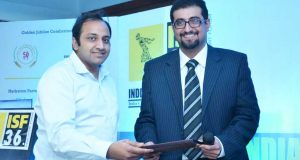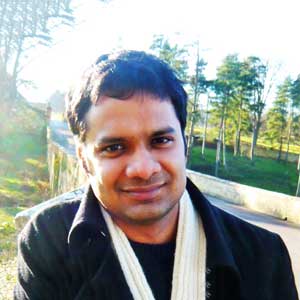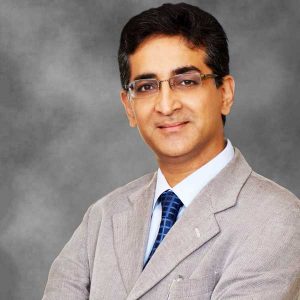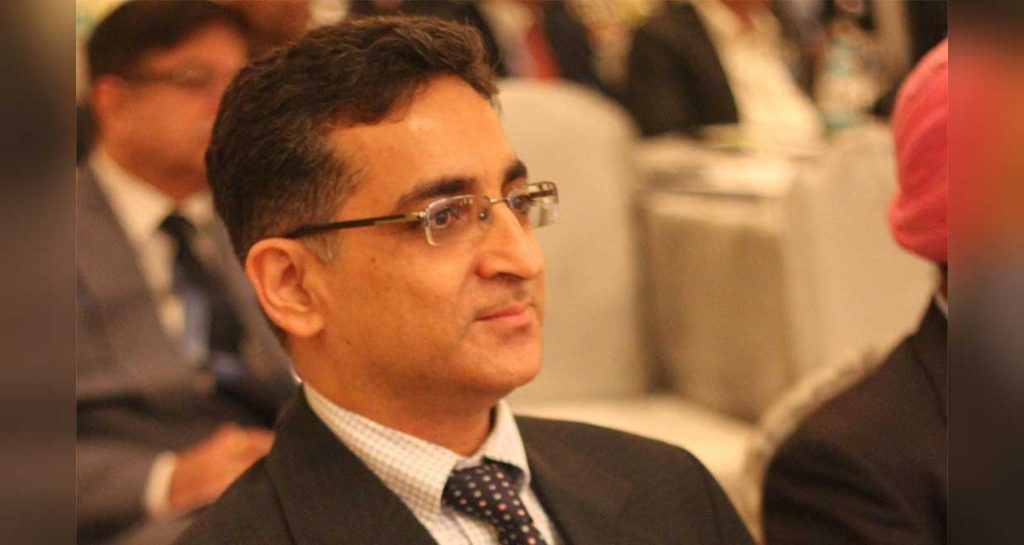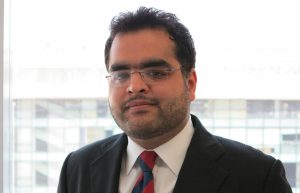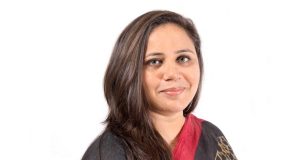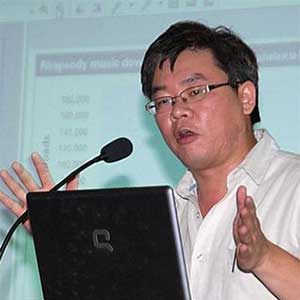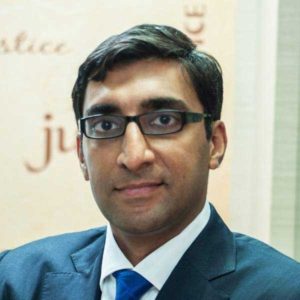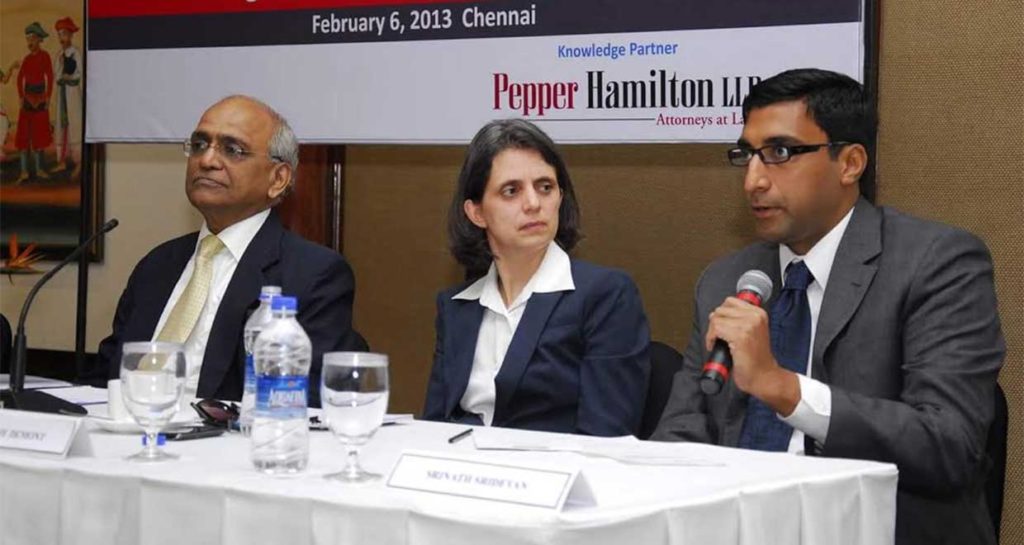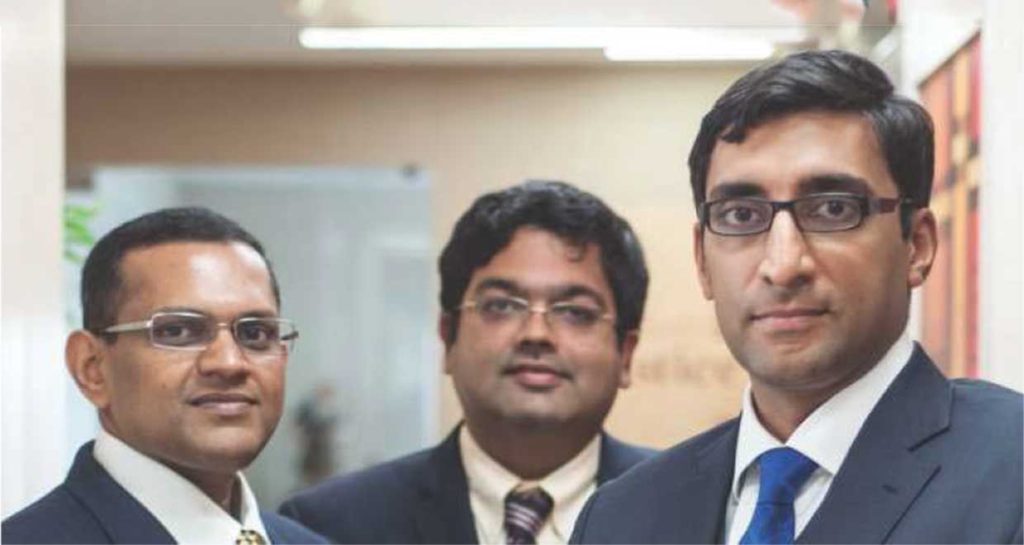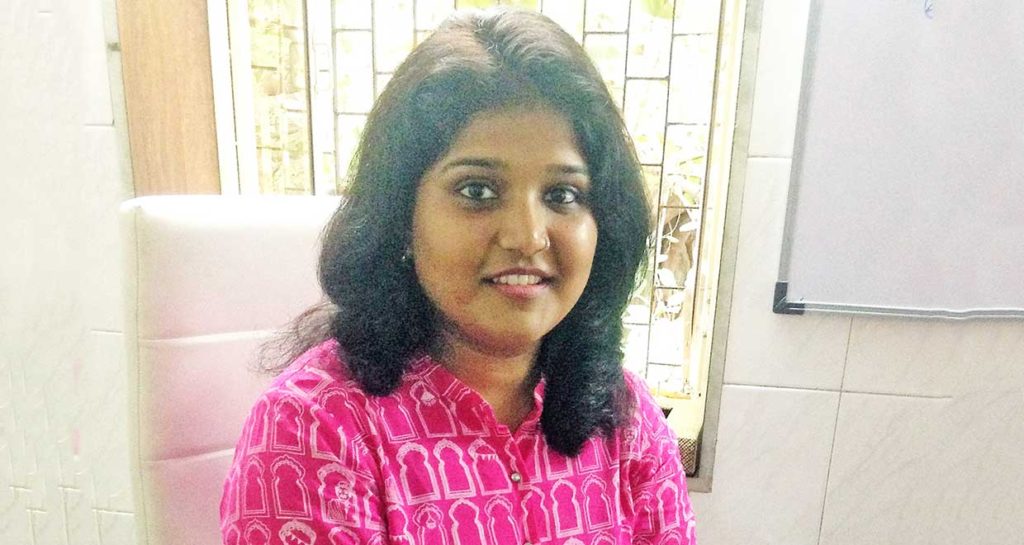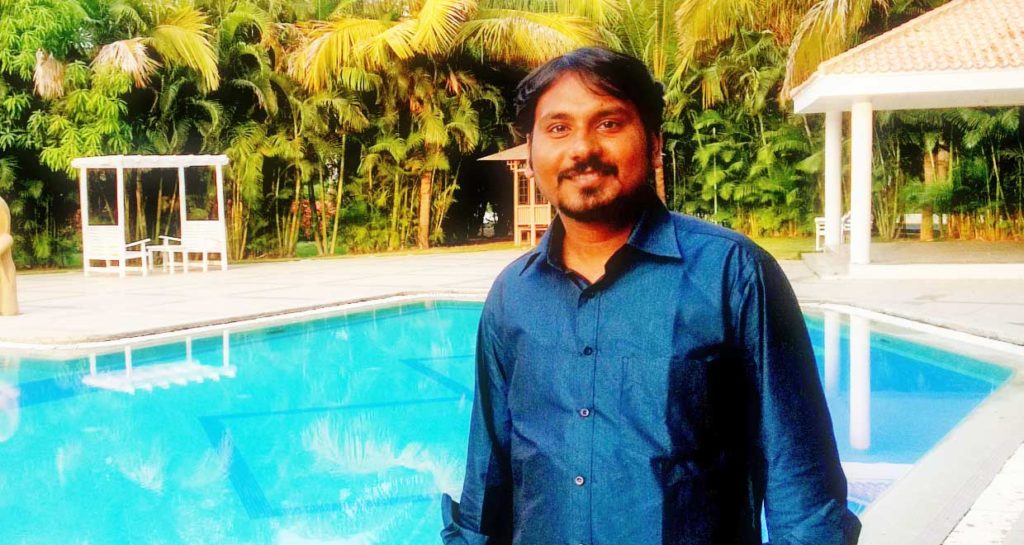![manisha-chaudhary-1]()
Manisha Chaudhary graduated in law from Amity Law School, Noida in 2012. She went on to pursue her LL.M. from Cornell Law School, focusing on corporate laws. She is now the Managing Partner at UKCA and Partners (formerly UKCA Law Chambers).
In this interview, Manisha discusses:
- Her childhood experiences that pushed her towards choosing law as a career.
- Her considerations while choosing the best university to do an LL.M.
- The methodology she uses to research and write articles
- Her views on the legal education system in India
How would you like to introduce yourself to our readers?
I am presently the Managing Partner at UKCA and Partners (formerly UKCA Law Chambers), a law firm founded in the year 1986 by my father, Mr. U. K. Chaudhary, an eminent Senior Advocate. He had to disassociate from the firm when he was designated as a senior and the firm passed on to his juniors.
Tell us about your childhood and pre-college life. Was it always your dream to be in legal profession?
The first question I usually get asked when I meet someone is “So, when did you decide to be a lawyer?” And honestly, my answer usually is “Ummm, I was born to be one!”
My parents had always encouraged my brother and I to follow our dreams (even if we fell flat on our faces, they were always there to support us). My parents thought that I would take up medicine as a profession, and as a matter of chance I was great at all the science subjects. However, during school, I took keen interest in debating, dramatics, creative writing, the book club, and such related co-curricular activities, which I assumed would help me expand my intellectual abilities. I am sure if Philosophy was a subject in high school, I would have been the first to enrol. For me, it has always been about gathering information and being fully informed on various subjects, even if it may be of no concern in my life or to me. My closest friends call me Ms. FYI – For your Information! As a child, I would have my parents sign illegible handwritten contracts to make sure I get paid in cash or kind for the chores I had done (which were often repudiated by my mother!). I would sit in my father’s office for hours reading law books at random, which at the time made no coherent sense to me; sibling disputes were handled in the High Court of Mother and I would put across detailed arguments on how I had been wronged and have my brother pay compensation. So far as I remember, I would bolt to our front gate to get the High Court ‘Cause List’ to find my father’s name, read his files and point out the grammatical mistakes (concepts of legal English were lost on me) and organise the office files and Bare Acts. I would strut into his office and take dictation from his juniors and then type it out for them, which they sportingly let me do.
I truly believe that the inclinations towards the right subjects, an inquisitive attitude towards life, and the constant need to learn and try new things, are inherent qualities of every lawyer and the very fact that I declared myself to be a future ‘financial’ lawyer to all my near and dear ones in the 8th grade did it in for me.
What led you to choose legal profession?
Whenever someone sought advice from my parents whether one should pursue a career in law, they would categorically say the following:
- The profession requires hard work, dedication and perseverance.
- You will have to constantly read, study, and keep yourself up-to-date for the rest of your life.
- You may have to give work priority over family and friends, and finding a balance will be a challenge every day.
- You will always be busy and rushing everywhere.
- There is no retirement.
After hearing this, I was instantly hooked.
Tell us about your experience in Amity law School. What all curricular and extra-curricular activities did you participate in?
Amity Law School, Noida was in its infancy when I joined. There were not many rules and regulations which barred us from enjoying the ‘Delhi University’ style college life. However, within a year or so, everything settled down and Amity became like any other law school, with the added advantage of foreign educated faculty and international level infrastructure. Amity was and is notorious for being elitist and grandiose but lacking in terms of quality education. However, I beg to differ. Amity is much more than scoring marks, preparing for moots and planning to be an associate in a big law firm. It is a wholesome college experience. Since it is one huge campus for all departments, there are many inter-departmental competitions, festivals, sports meets etc. that gives a young student the opportunity to not only learn their subjects but also learn from other streams. While at Amity, I actively participated in intra-class debates, inter-college competitions, essay competitions, a few national level moots, went on court visits, helped organise events etc. I even participated in cricket and volleyball matches! Since every class at Amity was more or less a group discussion, staying on top of the subject was important. Amity truly teaches you how to survive in a cutthroat world and to bring your ‘A game’ at all times.
You hold a masters degree in law from the prestigious Ivy League school Cornell University. How well did your experiences there prepare you for your current responsibilities?
I aspired to apply only to Ivy League institutions and hence all my efforts in law school and at work were to make sure to have the minimum requirements of marks, moot competitions, publications, work experience, court appearances and professional growth. I worked fulltime for two years because I wanted to have at least a basic knowledge of corporate laws before specialising in the subjects that I accordingly elected. I know that many people prefer to apply for their masters right out of law school, and do exceedingly well. However, I differ on this approach. I believe it is important to gain some work experience prior to applying as it helps you determine what field of law you would like to specialise in. Most of my classmates had previously worked as lawyers or paralegals and it gave me the opportunity to learn from them.
Cornell is known to be a relatively easy Ivy to get admission into but the most difficult to graduate from. The courses are multi-dimensional and challenging. All the subjects I pursed at Cornell were specialised topics, and were taught by professionals from New York City and seasoned professors. To truly learn, it is important to not just sit in class and take notes, but to actively engage with the professors and lecturers and to pick their brains. I sincerely think that I would not have been able to truly extract the essence of the courses, if I had no previous work experience in the same field.
Having experience gave me the ability to compare what I know to what I was learning and hence I could discuss with other students and professors how to grow professionally and overcome the challenges faced at work. The exchange was mutual ofcourse, because I was able to help my classmates understand the Indian legal system and clarify many of their doubts as well. While at Cornell, I gave a lecture on the Indian Constitution and had students and professors attend the same. It was a feeling of humble pride and an ecstatic high. Cornell does not grade its LL.M. students but rather offers “comments” such as Unsatisfactory (meaning that you have to take the course again), Satisfactory, Honours and High Honours. They believe that since master’s students are scholars they cannot be judged, as there is no “right” or “wrong” interpretation of law. This experience of formulating an opinion on a subject of law and having the same appreciated, even if no one agrees with it, genuinely gives one a tremendous sense of achievement.
How should one assess their LL.M. program? What are the key factors to be kept in mind while applying for LL.M. in different universities?
First, an LL.M. program or college should not be solely evaluated on the rankings given by various news agencies. The statistics are based on a variety of factors, which can be highly manipulated and hence are not the best tool for assessment. Second, it is important to speak to Alumni, who can guide you and offer you the best advice regarding the school and the course. Third, do a comparison of colleges on factors which are important to you. For example, Yale is an excellent law school but I did not think it was a good fit for me because it is more academically inclined and I wished for a college which is more inclined towards the industry. Fourth, consider your long-term goals. Before choosing your college of choice, you need to establish the reasons why you wish to pursue an LL.M., how it will help you achieve your career goals, what are its post qualification prospects, etc. Fifth, thoroughly research the faculty, the class size, internal policies regarding LL.M. students, how courses are allotted etc. Cornell and Yale have an average of 80 persons per LL.M. batch whereas NYU has an average of 400, hence the classes you wish to take may not be available to you. You can best assess an LL.M. course by reading up on it and speaking to the Alumni, who are more than willing to help. Do not be afraid to ask questions, even if they seem condescending, after all, you are spending a huge amount of resources on an LL.M. degree. To apply for an LL.M. course keep the following “Cs” in mind:
- Cost– it is very important because an LL.M. does not guarantee you a dream job, and hence it is important to have your funding in place. In case you plan to take loans, then a plan to clear your debts is important.
- Course– do a thorough analysis of the subjects offered and whether they are in sync with what you would want to specialise in and the future prospects of the same.
- Country– United States of America and the United Kingdom are not the only two countries, which are popular for LL.M. courses. Many students choose to go to Continental Europe or the Middle East to truly expand their horizons in their chosen field of law.
Once you have these three figured out, the rest is easy. It will all fall in place once you get there and you will make lifelong memories.
Presently you are Managing Partner at UKCA. What falls within the scope of your responsibility?
Being a Managing Partner of a firm that is constantly growing is full of challenges. We have a very simple internal structure and I am thankful to each of my employees, associates, and partners for helping me execute my vision for the firm. My foremost responsibility is to consolidate the interests of everyone in the firm and make a comprehensive plan for implementation. Being a Managing Partner also puts me in the shoes of a business owner and hence I make monthly goals for my formidable team to work on. Meeting new clients and promoting the firm is my second responsibility and one that I am constantly learning and improving on. My third responsibility is to oversee finances, appraisals and compliances of the firm. I am also involved in administrative aspects of the firm and look into procurements, subscriptions, memberships, disputes etc. However, my most vital responsibility is to each of my clients and hence every document which goes out of my firm is vetted and finalised by me. Though I can blindly trust my principal associates and partners to settle every document, I believe it also my duty to be personally involved in every matter and be available to clients with full attention to details of their transactions and litigations. I attend most court hearings and am always present on deal closings to assist my clients and my associates and partners.
While hiring new lawyers what kind of skills you look for in their CV.
The portion of any CV that I disregard is what law school the student is from. It is in my experience the worst measure of how good a lawyer is. The skills I am most interested in are work experience and drafting-research. No law firm is looking to hire first year associates for arguments in courts or lead negotiations and close deals. When hiring fresh law graduates, I want to see their results in moot court competition, creative writing skills and their personalities, whether they will be good fit for the firm and whether they have what it takes to survive long hours and hard work. The next portion to get my attention is usually grades as that can be a decent marker of your basic knowledge and learning skills. I then focus on languages and diversity the person may bring to the firm. If you pass these three criteria, you will be invited for an interview. A job at my law firm depends on the interview with the partners and other assignments which we will ask you to undertake.
You hold certificate in Corporate Law and Governance from the renowned London School of Economics and Political Science, United Kingdom. How far are these certificate courses helpful? Tell us about the experience.
Certificate courses, if used as a tool for continuing education, can be of great significance in the field of law one specialises in. Certified courses abroad can be in the form of summer school or standalone courses depending on what time of the year you apply. It is a great learning experience apart from being a mini vacation where you make new friends from various countries and different walks of life. In my LSE class, we had finance graduates, lawyers, CEOs, directors of companies, accountants, economists etc. The class was engaging and helped us get a sneak peak of problems faced by professionals in many countries and how we could learn from each other’s experiences. Certificate courses as a supplement to further your knowledge are a great tool and I would suggest a refresher ever so often, whether in India or abroad.
You are an avid writer and have published various articles. How would you advise students to go about their careers with respect to research and writing, publishing grade academic papers?
I consider publications to be an integral part of a student’s education and a lawyer’s career. Be it writing books, articles, presentations, or even comments on various blogs; it helps hone their research and writing skills. Every student or young lawyer should follow a systematic approach in their own way to writing articles, which will help to get the articles published. Also try to collaborate with seniors or other co-authors to write books, columns, blogs etc. The more publications you have, the greater the impression that you have what it takes to be a scholar or an expert. All colleges prefer students who have published work as it helps them gauge a person’s intellect to a certain level.
I have written many articles (published and otherwise), prepared presentations for clients, prepared lectures to deliver at seminars for both myself and my father, and I have a very specific, stepwise approach to them all. I have to confess that I am truly a Google junkie. My first step is to ‘Google’ all the information on a subject and read as much as I can, both positive and negative comments, articles etc. to thoroughly understand a topic. The next step in my research is usually news articles available on the internet, and then I move on to articles and presentations by other professionals. All this helps me in getting a general idea of the topic. From here starts the actual process of research. I then peruse the Bare Acts on the subject to interpret the legislative intent and form my own views and opinion on the sections. Next I read the amendments, rules, circulars, and notifications etc. to make sure that nothing important has been overlooked. I also look up any proposed amendments, which may further help me understand the true intent of the law. I then go on to debate every point with my father. I am lucky to have an expert on corporate laws right at home and since it’s my chosen field of practice, I fully exploit every opportunity, though sometimes I am shown the door! Once I have decided on what my hypothesis on a certain subject is, I go on to read scholarly articles, both Indian and international, to understand how I may or may not differ from others. I also research case laws, which may be applicable or made applicable on my hypothesis of a certain subject. My research is usually complete at this stage and now begins the difficult part to put together all the research into a written form. Once I have written an article, I go through it repeatedly to make sure that there is a gradual flow of information and that is no diversion from the main issue at hand. Before submission, I do a plagiarism check, which points out any flaws my article may have. A few points to be kept it mind before submission are– always source you articles, try to be as original as possible, use precedents and do a proper edit for spellings and grammar.
You have been regular guest lecturer at various law schools. How is the curriculum of a foreign law school different from an Indian one? What changes, if any, would you like to see in Indian legal curriculum?
It saddens me to say that the Indian curriculum for law schools is very dated and impractical for today’s legal profession. The curriculum has been the same for the last few decades with minor changes and focuses mostly on the theoretical aspects of law, majority of which is not relevant for practice. Though some changes have been introduced such as moot courts, projects, and internships, there is still a vast scope for improvement. The quality of the profession is greatly affected due to lack of quality education. I believe we need a complete overhaul of the subjects being taught at law schools. I also believe that teachers, lecturers and professors have to conduct more clinics to teach students the art of presenting arguments, negotiations, trial advocacy, deal closing, preparing transactional documents etc. This will prepare the students for the profession and greatly improve the quality of lawyers.
The curriculum at foreign law schools is also theoretical but is limited to only a few subjects. What I admire most about foreign law schools is the focus they have on how to make a student an asset for the profession. They make sure that a student who has graduated knows the profession and only has to start polishing themselves to become an expert. In India the approach is to push you into the profession and have you learn on the job, which is not beneficial for every student. I know so many young lawyers who give up litigation or transactional practice because they cannot deliver the quality of work their seniors expect of them. There is tremendous scope for students to elect subjects, which specialise in a certain area of law, such as laws for technology start-ups, laws for ethical hacking, laws for crowd funding, documentation for leveraged buyouts, preparing IPO documentation, investment banking etc. Such subjects need to be taught to give Indian students a level playing field with their counterparts abroad. We should also encourage inter-disciplinary courses where law students along with management students, bankers, engineering students or business students come together to solve complex transactional issues and learn to work on deals which will require understanding and cooperation between different professions. The Indian legal education system needs a more robust, dynamic and diverse curriculum to be of any use to new age lawyers or else we will be left far behind our global counterparts.
You have also been providing pro bono services to social enterprises and start-ups. What is the source of motivation?
I have been inclined to work towards certain causes relating to the environment, women and children, which have been close to my heart since high school. I provide free legal aid to social enterprises and start-ups that are working in the same field. If I am not able to help, I connect them with my friends who may be able to do so. I sincerely believe that our country has every resource to become a great nation. However, we lack the collective will to do anything about it. The motivation is to make a difference to the society in order to make it better for us all. Social enterprises and many start-ups, including NGOs are working day in and day out to help those who are less fortunate and I wish to be of some help, to the best of my abilities, in their struggle. If I can help them save legal costs, which could sponsor another tube well, or educate a young child, then why not!
What would be your advice to our budding lawyers?
I have some very simple advice:
- Research like your life depends on it. Do not open your mouth unless you have research to back up you arguments or legal opinion. Try to be informed and updated on a daily basis.
- Draft, re-draft and then re-draft again, thinking about each possible consequence of every sentence that you have written. Think not only from your client’s perspective but also from that of the opposition. Be honest and fair to the courts. Do not suppress any document or information.
- Be organised at all times. Deadlines have been given for a reason and priorities have to be set.
- Do not be disrespectful to juniors, seniors, judges, staff, etc. Maintain decorum in court and in office. Do not get personal, and lay yourself open to perennial criticism.
- Be ethical. No client or their money, position, or fame is more important than your allegiance to the profession.
- Be loyal to your employer and your clients who took a risk with you and give them your best at all times. However, you deserve to be treated with respect and do not let anyone make you believe otherwise.
- Try to learn from your seniors without disturbing them. Keep your ears and eyes open and you will pick up on many tricks of the trade.
- Do not try to be Ms. or Mr. Know-It-All. Even seniors with 40 years of experience do not know it all! Do what you are good at and strive to be better with each day.
- Bunker down, and do not be afraid to work late nights and long hours. You will reap benefits of your hard work.
- Enjoy being a lawyer, and take it as your life’s passion not as a bread earner, It is an admired profession but if you do not love it, leave now else you will always be miserable.
![]()




